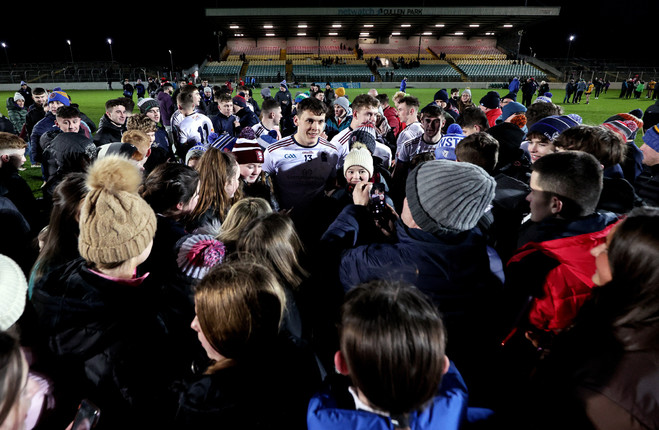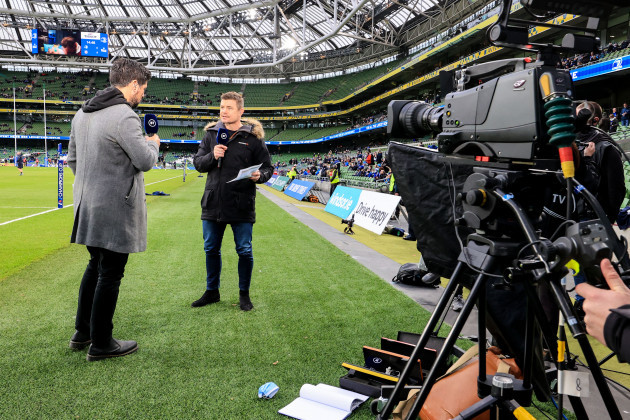1. Out on the field, David and Paudie Clifford were going through their warm-ups with Fossa, a few weeks since winning their All-Ireland with Kerry, happily lost among their friends. Fossa play in the Kerry Premier Junior Championship, the third-tier of Kerry club football.
In global terms watching David Clifford here is like Lionel Messi winning a World Cup in his prime and returning immediately to Argentina to play for Newell’s Old Boys, his first club. What could never happen there is part of the magic here.
2. O’Driscoll believes France and Ireland are the two best teams in the world. “I do, for now, but so much can change, particularly in a country like Ireland. If you lose one or two big-name players it would have a significant impact on morale as well as the belief you can actually get to that elusive semi‑final or even the final and win it.”
Would he feel the same bittersweet emotions if Ireland were to win the World Cup? “It would be there, but I’m far enough removed now. If it was my first World Cup, oh my God. But I’ll have missed three by next year. Don’t get me wrong, I’m still entitled to go: ‘Oh, those lucky feckers.’ But I’ll be able to enjoy it an awful lot more than I would have done after a year out of the game. It’s getting easier.”
3. “I have something to show you,” Mark says, his warm face delighted and boyish as he flashes one of his conspiratorial smiles. We head to the kitchen and Mark takes a small baggy of what looks like a single leaf of arugula from the freezer.
Placing it delicately on the quartz countertop, he giddily relays the story of the time the Centre Court grounds staff thought they were finished for the day, but, nervously, Mark pointed out a dandelion they had all missed. He had managed to out-perfect the perfectionists, and the evidence was flown across the Atlantic to live in the Kuhn family freezer.
He gazes at it with reverence: his little green miracle in a Ziploc bag.
The New York Times – Tending to Grass, and to Grief, on a Tennis Court in Iowa.
4. After hearing and reading all about the Ballyforan incident and no doubt being suitably appalled, how did we carry on? Did you still give out about the referee at the game you took in, within earshot of others and even the ref himself?
Me too.
I can’t say I was abusive. The couple of occasions I found myself highlighting or bemoaning a wrong decision he had made – for they were the wrong decision, my vantage point being better and unhindered compared to his – it was the call, not the man, I was criticising.
It should also be pointed out that both sets of players and management teams were generally very respectful towards the ref and his fellow officials throughout the game, for all the times their respective supporters would have occasionally questioned or berated a call.
But still I should have been better. I should have known better.
5. The reality is that there is almost never a perfect time or situation in football. One of Potter’s rivals for the job, in Mauricio Pochettino, could tell him that. So could Brendan Rodgers. Six months ago, the Leicester City manager would have been the obvious candidate.
There is now talk of whether Brighton might suit him, as Chelsea are not even looking.
All of this discussion, as with everything now, is shaped by the economic framework of the modern game. It in this case sharpens a truth almost anyone can relate to. You often have to take these chances as they come. There are few guarantees.
Such is the precariousness of the Premier League beyond the big six that the wrong player sale, or the wrong run, can completely change your position and your perception. As exceptional as Brighton have been in recruitment, as an example, Leicester are proof that you can’t indefinitely sell your better players without eventually suffering a dip.


